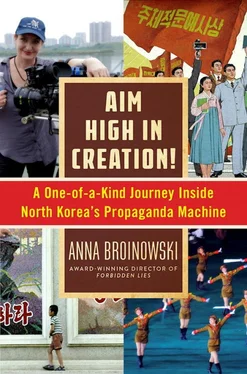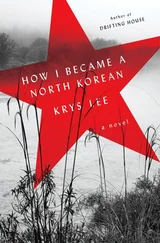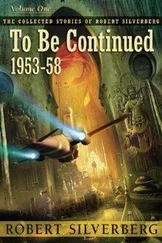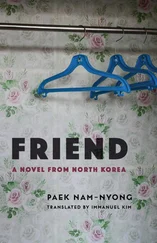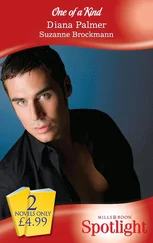The icy bubbles taste like freedom in the back of my throat—but we’re not in the clear yet. Ms. K strides through the hotel’s revolving doors and slides into the booth beside me. Whatever Q has told her has compelled her to leave the film festival building and hurry through the slogan-filled hedges to join us. Never one to let a crisis get in the way of a drink, Ms. K orders a Taedonggang beer, fixes me with her half-smile, and presents a contract. It’s printed on recycled paper, the filaments pressed into a pale brown weft beneath an old copperplate font.
Two clauses immediately stand out. First, our North Korean collaborators can view any footage we film, and “will deal with customs regulation for viewed footage.” And second, they “will not be held responsible for an irresistible situation” occurring during our shoot. Fair enough, I think: Ms. K is using the threat of customs confiscating our rushes to justify Korfilm’s right to check them whenever it likes. More curious what an “irresistible situation” in North Korea could possibly be, I check the fine print. It lists “natural calamity, disease, and measures taken by the state.” That doesn’t sound reassuring. “Measures taken by the state” could mean anything—from Kim Jong Un declaring war on the West, to Pak being arrested for discussing The Godfather, to Nic and me being detained for possessing images of Kim Jong Il.
“You must sign now so we can make sure everything goes okay at the airport,” Ms. K says evenly. And I know I can’t sign. It’s not the customs threat that’s bothering me, although that’s undeniably ominous—it’s clause 3.1: that I “shall guarantee the film’s accuracy and objectivity, and not use any narration or voice-over in the finished film.” I assume this has been inserted to prevent me from making another Red Chapel , after Mads Brügger betrayed his North Korean subjects so comprehensively a year ago. But given my documentary fuses North Korean propaganda with coal seam gas, I’m going to need narration to help audiences make sense of it all. Protecting your footage is one thing; signing a contract you can’t honour is where I draw my ethical line.
“Please delete clause 3.1,” I say to Ms. K. “And I cannot sign for Unicorn Films without Lizzette seeing it.” Ms. K puts down her beer, displeased. “I will check the clause,” she says. “However, if you don’t sign soon, we cannot help you in leaving.” She beckons over a slender man in a suit, sipping tea at the bar. “This is Comrade Guk.” I recognise him: Guk is the gatekeeper who stopped me breaking into Floor Five on my last trip. “Comrade Guk will inspect your rushes, so customs do not have to,” Ms. K says with a pointed smile. “Please hand them over.” I give Guk our three orange drives, and he looks at the cable sockets, puzzled. North Korean computer geeks, it appears, have yet to hear of FireWire. Blocking out the possibility that the inscrutable Guk will find a whole new list of clips we have to delete, I give him a FireWire cable, and head for the Tailor & Business Centre in the lobby.
The Yangakkdo’s monolithic nineties computer sits on its lacy doily, the screen freshly dusted. According to Lonely Planet , the machine is set up for guests to send one email to the outside world, in the case of an emergency: but no one has actually done it to see if it works. I wait for the machine to groan to life, picturing Guk’s comrades poised over their screens on Floor Five, waiting to see what I write. The business centre lady brings up whatever the North Korean version of Yahoo is, and I type Lizzette’s address into the utilitarian header. The keys, when I tap them, pop like bubble wrap. They haven’t been used for a very long time.
Hi Lizzette
Filming going well, Korfilm sending contract. Must sign asap, to assist rest of shoot ----- and departure. Trust ok, x Anna
I press Send , hoping Lizzette will realise the hyphens stand in for a whole lot of things I can’t possibly say. The business centre lady shuts down the computer, and I make my way back through a mob of freshly de-bussed tourists. They lean excitedly over their cameras, sharing pictures of the Kim statues at Mangyongdae. As Nic and I follow Team Gas out to our van, they watch us with envy. These people have been cooped up in a bus for three days and shunted from photo-op to photo-op, with no contact with North Koreans other than their guides. “Where are they taking you today?” asks a Canadian academic, his cabin fever making him look slightly insane. Last night in the non-revolving restaurant, he confessed to me that Pyongyang is fifth on his bucket list, but the rest of North Korea is first. “To the countryside,” I say, trying not to gloat, and skip outside.
When Pyongyang visitors want to see something farm-related, they are normally taken to marvel at lovingly tended rows of “Kimjongilia” flowers in the botanical gardens north of the city. But Ms. K has a remarkable ability to get us into places not on the tourist radar. When we were planning the shoot, I’d emailed asking if we could see a cooperative farm like in Urban Girl Gets Married , and Ms. K exceeded even her own high standards: “Let us go to the People’s Magnificent Taedong Apple and Turtle Farm!” she’d replied.
From what I can work out, the Apple and Turtle Farm is in Taedong County in South Pyongan province, two hours from Pyongyang. The province is split into one up (village), one rodongjagu (worker district), and twenty-one ri (towns). My map indicates we are currently on Sochon Street, heading west. We could be on the road to nowhere, for all I care—I’m just glad to be escaping Korfilm. Team Gas seems to share my relief: as we speed along the highway, suffused with the joyful optimism that kicks off all road trips, the driver puts “Hwiparam” on the stereo, and my North Korean comrades, in their koala caps, start to sing.
“La la la la Hwiparam,” warble Mr. Wang and Sun Hi, as the driver imperiously waves our travel permit at the third checkpoint we’ve passed in ten minutes. The soldier peers at Nic and me curiously and waves us on. “HWIPARAM!” sings Team Gas triumphantly—then Sun Hi stops and leans over with sudden concern. “What can we do about the problem of gay people?” she whispers. I look at Nic. Sun Hi’s ignorance of the West is almost total: she doesn’t know of George Clooney, Madonna, Bowie, or The Beatles. Her ideas of how Westerners live are cobbled together from The Sound of Music , Mary Poppins , Bend It like Beckham , The Pelican Brief , Tchaikovsky’s Swan Lake, and the snatches of slang we taught her before Q shut her down. We’ve been itching to enlighten Sun Hi for days. Now we’re in the countryside, with Ms. K safely back on an island in Pyongyang, and no Man in Black taking notes. The camera isn’t rolling, and Q is taking a break from his surveillance duties to enjoy the scenery. This is our chance.
“Well, Sun Hi,” I begin gently, “where we live, gay people are not a problem. In fact, we believe they have a right to live normal lives, like everyone else. Our government is even considering allowing them to marry. And every year, in Sydney, gay people put on sparkly underwear, and dance in the streets. There are men dressed as women and women dressed as men, and big strong girls on motorbikes with topless girlfriends. There are gay people from the army, the police, and the government. They all march and do group dancing and throw sequins at the crowd. They carry banners criticizing our politicians, and afterwards, they go to a stadium and dance until dawn, sometimes on illegal drugs. The parade is called Mardi Gras, and it is broadcast on national TV. It is celebrated by six hundred thousand non-gay people and their families—which is roughly the population of Tasmania—who all turn up in the streets to clap.”
Читать дальше
